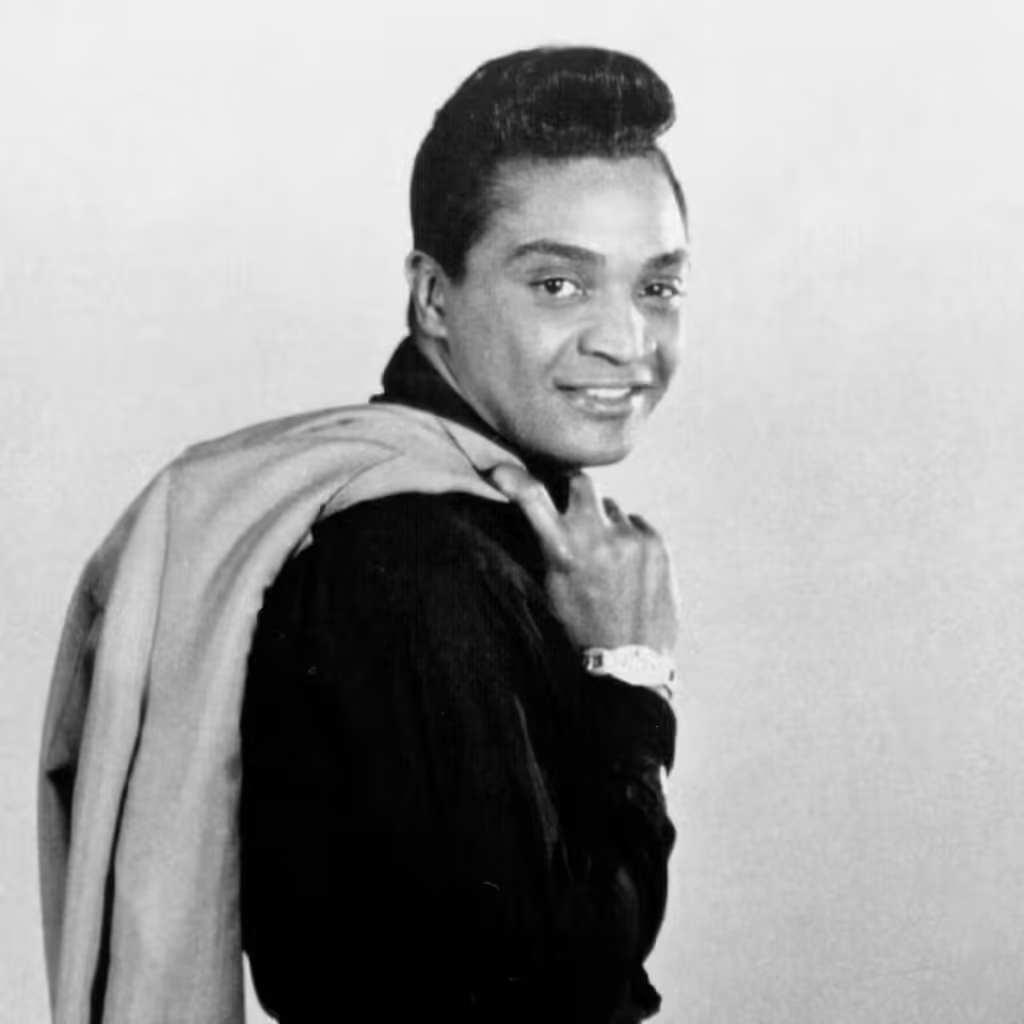
Table of Contents
Who Was Jackie Wilson?
Jackie Wilson was a dynamic soul performer whose influence resonated throughout the 1950s and 1960s, effectively bridging the gap between rhythm and blues and mainstream pop music. His career began in 1953 when he joined the renowned group Billy Ward and his Dominoes, where he quickly established himself as a standout vocalist. In 1957, Wilson embarked on a successful solo career, marking his rise to fame with the release of “Lonely Teardrops” in 1958.
This initial success was followed by a string of iconic hits, including “Night” in 1960, “Baby Workout” in 1963, and “(Your Love Keeps Lifting Me) Higher and Higher” in 1967, each showcasing his powerful voice and captivating stage presence. Tragically, in 1975, Wilson collapsed on stage, leading to a prolonged coma until his passing in New Jersey in 1984. His remarkable contributions to music were posthumously recognized with his induction into the Rock and Roll Hall of Fame in 1987, solidifying his legacy as a pioneering figure in the world of soul music.
Early Career
Born Jack Leroy Wilson Jr. on June 9, 1934, in Detroit, Michigan, Jackie Wilson was one of top singers of the 1950s and ’60s. Known for his appealing tenor voice and tremendous stage presence, Wilson was also known by the moniker “Mr. Excitement” for his ability to wow audiences.Wilson started out singing gospel music. As a teenager, he was also a successful Golden Gloves boxer. Wilson’s mother reportedly asked him to stop boxing, so he picked a different direction for himself. In 1953, Wilson made music his career, joining Billy Ward and his Dominoes (also known as Billy Ward and the Dominoes) as the group’s lead singer; he was brought in to replace Clyde McPhatter.
Top R&B and Pop Singer: Jackie Wilson
In 1957, Jackie Wilson released his debut solo single, “Reet Petite (The Finest Girl You Want to Meet),” marking the beginning of an illustrious career. The following year, he made his mark on the pop charts with “To Be Loved.” December 1958 saw Wilson achieve his first No. 1 R&B hit with “Lonely Teardrops,” an upbeat song that poignantly expressed heartbreak and also reached the Top 10 on the pop charts.
Wilson’s success continued as he consistently charted with a diverse array of songs. He showcased his passion for opera with the 1960 release of “Night,” which was inspired by an aria from Camille Saint-Saëns’s “Samson and Delilah.” That same year, he dominated the R&B charts with the soulful ballad “Doggin’ Around.” In 1963, his infectious track “Baby Workout” became a dance floor favorite and another chart-topping R&B hit for Wilson. His last major success came in 1967 with the uplifting “(Your Love Keeps Lifting Me) Higher and Higher,” solidifying his legacy as one of the premier artists in R&B and pop music history.
Death and Legacy
On September 29, 1975, Jackie Wilson collapsed on stage while performing “Lonely Teardrops” at a nightclub in New Jersey. It was later determined that he had suffered a heart attack, although some reports suggest it may have been a stroke. Following his collapse, Wilson fell into a coma from which he never recovered. By 1977, he was residing in a retirement community in New Jersey, requiring constant care.
In 1978, a court battle ensued among members of Wilson’s family over guardianship of the incapacitated musician. The court ultimately ruled in favor of his second wife, Harlean (Harris) Wilson, over his son, Tony Wilson, who was one of the children from his first marriage to Freda Hood. Jackie and Freda married in 1951 and had four children together before divorcing in 1965. Harlean and Jackie, who had wed in 1967, had been estranged for some time prior to his health crisis in 1975.
After spending eight years in a coma, Jackie Wilson passed away on January 21, 1984, at a hospital in Mount Holly, New Jersey. He was just 49 years old. Three years later, he was posthumously inducted into the Rock and Roll Hall of Fame, recognizing his profound influence on artists such as Prince, Michael Jackson, and Elvis Presley.
